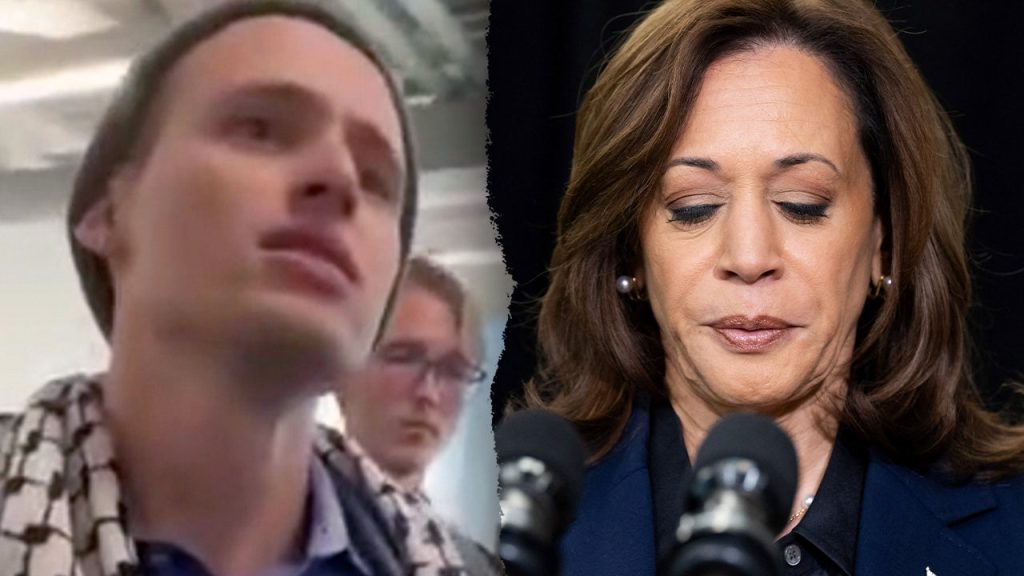Vice President Kamala Harris was interrupted by a protester accusing Israel of genocide during a campaign stop at the University of Wisconsin-Milwaukee. The protester questioned Harris about the ongoing conflict between Israel and Palestine, specifically mentioning the billions of dollars sent to Israel and the number of children who have died in the conflict. Harris responded by expressing her desire for a ceasefire and for the war to end, but did not directly address the accusations of genocide. The protester was then removed from the event, but Harris later acknowledged the validity of his concerns in her remarks to the audience.
This is not the first time that Harris has appeared to agree with accusations of genocide against Israel. In a previous incident at George Mason University in Virginia, Harris nodded along as a student accused Israel of ethnic genocide and questioned the funding provided by the United States to Israel and Saudi Arabia. Harris responded by emphasizing the importance of allowing diverse perspectives to be heard in a democracy, indicating her support for the student’s right to express their beliefs. These incidents raise questions about Harris’ stance on the Israel-Palestine conflict and the level of U.S. support for Israel.
Harris’s responses to the protesters’ accusations are significant as they suggest a willingness to engage with controversial and sensitive topics, even if they deviate from the official government stance on the issue. By acknowledging the concerns raised by the protesters, Harris is signaling a commitment to listening to diverse voices and considering alternative perspectives on complex geopolitical issues such as the Israel-Palestine conflict. This approach may indicate a departure from traditional diplomatic rhetoric and a more open dialogue on the contentious issue of Israel’s actions in the region.
The fact that Harris has been confronted multiple times by protesters accusing Israel of genocide highlights the intensity of public opinion on this issue and the need for political leaders to address the concerns of their constituents. The ongoing conflict between Israel and Palestine has generated widespread debate and criticism, with calls for a more balanced approach to resolving the conflict and ensuring the rights and safety of all parties involved. Harris’s interactions with protesters reflect a growing awareness of these calls for justice and accountability in U.S. foreign policy regarding the Israel-Palestine conflict.
Overall, Vice President Kamala Harris’s responses to accusations of genocide against Israel suggest a willingness to engage with controversial topics and consider alternative perspectives on the Israel-Palestine conflict. By acknowledging the concerns raised by protesters and students, Harris is signaling a commitment to listening to diverse voices and advocating for the right of individuals to express their opinions, even if they diverge from official government positions. These incidents highlight the need for a more open and transparent dialogue on the Israel-Palestine conflict and the importance of addressing the concerns of the public in shaping U.S. foreign policy in the region.


